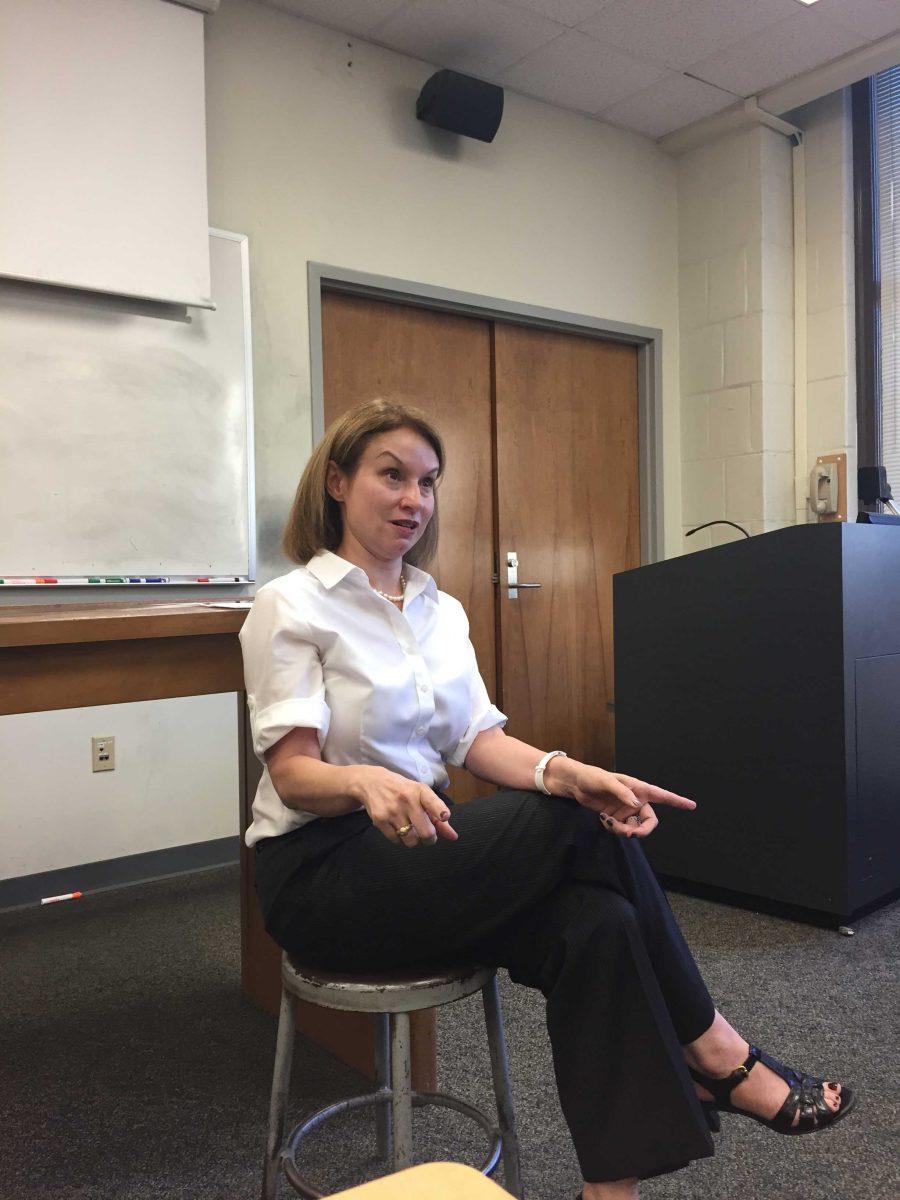The University welcomed back one of its own on Friday to discuss her path from one field of science to another and her promotion of mental health as a spokeswoman in her community.
Dr. Leanne Truehart, a University alumna, is a practicing psychiatrist and mental health advocate. However, it was the calculated, formulaic world of physics, not psychology, that first captured her interest.
Truehart began her lecture by describing how her fascination with space and existential curiosity was originally what led her to want to pursue a career in astronomy, which is why she majored in physics at the University. Later in her academic career she saw the appeal of medical school, and once she found psychiatry, she never looked back.
“I did a rotation in psychiatry, and it just blew me out the water. I loved it. It was unbelievable and very interesting,” Truehart said.
After completing a sub-internship in her final year of medical school, Truehart entered a residency through the National Resident Matching Program.
Truehart said that many of the major mental illnesses present themselves during the college years, a lot of times in what professionals call a “two-hit hypothesis.”
The hypothesis involves the genetic determinants combined with environmental factors that put people at risk for mental illness. Starting college is an extraordinarily stressful endeavor, which can be accelerated if young people are abusing drugs and alcohol, Truehart said.
“Even still to this day, there is a feeling that mental illness is something that happens to other people,” Truehart said. “Or that if you’re educated enough, or if you come from a good enough family, or if you pray enough, that will somehow prevent you from getting a mental illness, and nobody’s immune.”
One of the things keeping people from seeking help earlier on is stigma, Truehart said. Stigma originates from people fearing what they don’t understand. In earlier times when medicine and the brain were still a mystery, people didn’t know how to explain mental illness, leading to a derogatory, negative association.
However, Truehart said she’s seeing young people become more comfortable talking about mental health and treatment nowadays, which is an attitude that lends itself well to seeing a mental health professional.
The most important thing is to not initiate or participate in making fun of people with mental illness, and be self-aware of language you use in regard to mental illness, Truehart said. Observing mental health hygiene like getting adequate sleep, eating a healthy diet and increasing exposure to sunlight decreases the risk regarding mental illness.
While some stress is appropriate, like in academics, Truehart said the point at which it becomes problematic is when it doesn’t go away after the initial stressor, such as after a big test.
If stress is a constant, rather than an ebb and flow pattern, there’s something wrong. Students who are so anxious they have panic attacks and need to leave class or go to the emergency room or those who experience depression, which Truehart defined as being in a low or depressed mood for two weeks or longer uninterrupted, should seek the help of a mental health professional.
Truehart said that while her perspective on mental health hasn’t necessarily changed throughout her career, her understanding of it has deepened as science continues to develop, such as with neuroplasticity. Lived experiences can change the way that your brain connects with other neurons, so you can change your biology by having certain experiences and thinking certain ways, Truehart explained.
In addition to operating her private practice two days a week in Mandeville, Louisiana, Truehart serves as the clinical director of the Behavioral Health Court for the 22nd judicial district.
LSU alumna discusses career path, mental health
October 23, 2016
Mental Health





